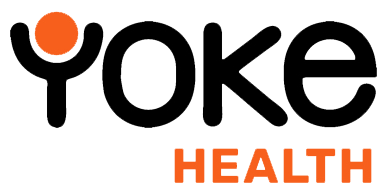5 ArtificiaI intelligence (AI) and machine learning advances that medical communication agencies need to understand
Posted in Digital Healthcare Insights
James Williams - Customer Development Manager
We’ve created a helpful guide outlining 5 AI and machine learning advances that healthcare and pharmaceutical communications agencies need to understand.
What is artificial intelligence?
AI refers to specialist computer systems that are rapidly developing to perform tasks that would usually require human intelligence, including machine learning, deep learning, and human-created algorithms.
Machine learning relies on computer systems that are modelled on the human brain, allowing computers to process data in the same way that the human mind would.
Both artificial intelligence and machine learning advances can be used effectively for a wide range of purposes, including disease identification and diagnosis, radiology and radiotherapy planning, clinical trial research and drug discovery.
Here’s a closer look at AI and machine learning advances and how they can benefit all areas of healthcare.
Better and faster diagnosis
Not every diagnosis is simple and clear cut. They often require high levels of investigation and multiple treatments and therapies. One of the main advantages of artificial intelligence and machine learning is that medical patterns based on specific symptoms and medications can be drawn up quickly and effectively.
This level of information paves the way for better and faster diagnosis, as healthcare professionals can diagnose, track progression, and create bespoke patient treatment plans based on individual needs.
Machine learning can even help to predict how long a patient will need to stay in hospital for.
Improved health outcomes
In any healthcare environment, improved health outcomes are a top priority.
AI and machine learning can help to improve the patient journey, ensuring every patient’s course of treatment is effective and bespoke to their needs. Machine learning can create treatment pathways for patients with a whole host of illnesses, recording data that can help to predict health outcomes.
Social Media Analytics
Social media campaigns can play a huge role in reaching out to target markets in all corners of the world, 7 days a week, 24 hours a day.
And more healthcare and pharmaceutical agencies than ever before are recognising the many benefits that come hand in hand with utilising the influence of experienced physicians and researchers.
Developments in artificial intelligence allow them to measure the influence these individuals have and therefore, quantify the success of the campaign. What’s more, machine learning can allow companies to identify which influencers will be most effective for their campaign needs. For example, certain physicians will focus on specific subjects or have high engagement on certain topics.
Rather than basing social media and influencer activity on a number of followers alone, with the help of AI and machine learning you can now delve further into key data and predict the outcome and impact of a campaign.
Pharmaceutical Recommendations
When it comes to treating any illness or disease, early diagnosis is key and artificial intelligence and machine learning can play a vital role in helping pharmaceutical companies to recommend the right treatment in order to optimise recovery time.
This level of stored data can also help pharmaceutical companies to run targeted campaigns focusing on treatment and medications for different illnesses.
After all, for complex and underlying illnesses, making an early diagnosis can be extremely difficult, for even the most experienced healthcare professionals. With this in mind, having the tools to raise awareness of undiagnosed patients can have a huge impact on recovery time and treatment.
Campaigns focusing on the early detection of disease symptoms have also helped to educate patients, so that they know what to look out for when feeling unwell.
Optimum risk monitoring
Machine learning can also help to gather critical patient information in real time in order to respond quickly and effectively to illnesses with the right course of action.
For example, machine-learning algorithms have been used to recognise critical changing points in a patients recovering, so that swift interventions can be made as and when required. Risk based monitoring has been proven to be highly effective when used alongside sensors and electronic data capturing devices in order to detect suspicious changes in a patient’s vital signs.
Here at Yoke Health, we drive digital innovation. Armed with over 20 years’ industry experience, we have been at the forefront of digital development and publishing in healthcare.
We’d love to hear from you and discuss how we could support your next project.

Monthly Archives
- July 2020
- June 2020
- May 2020
- April 2020
- March 2020
- February 2020
- January 2020
- December 2019
- October 2019
- September 2019
- August 2019
- July 2019

